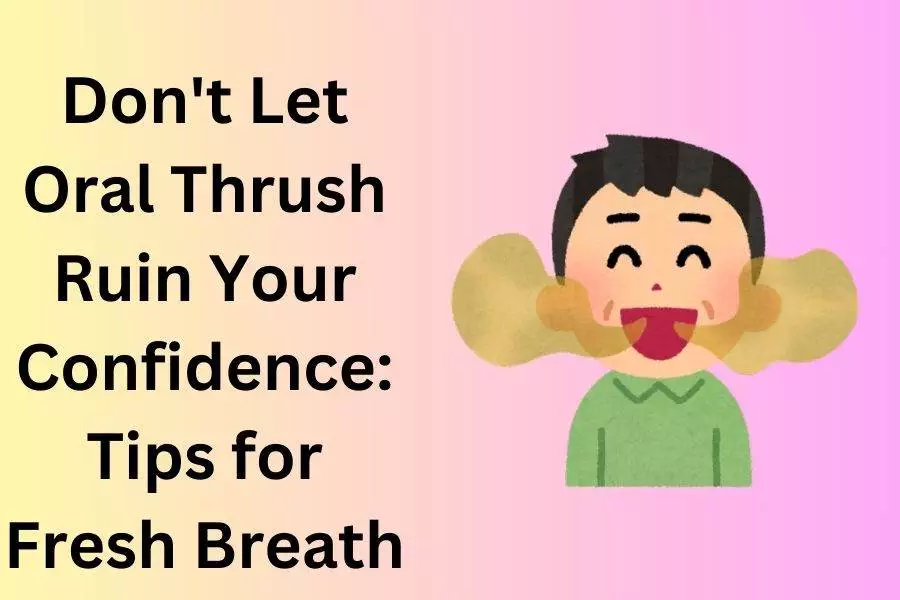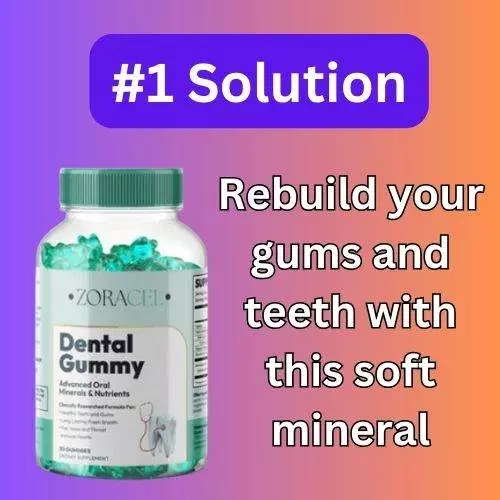
- Understanding Oral Thrush: Causes and Symptoms
- The Role of Bacteria in Bad Breath and Oral Thrush
- The Importance of Proper Oral Hygiene
- Brushing and Flossing Techniques to Combat Oral Thrush
- The Benefits of Using Mouthwash and Tongue Scrapers
- Natural Remedies for Oral Thrush and Bad Breath
- The Connection Between Diet and Oral Health
- How Stress and Anxiety Can Affect Your Oral Health
- The Benefits of Regular Dental Checkups and Cleanings
- Maintaining Your Confidence with Fresh Breath and Oral Health
Oral thrush and bad breath are two common oral health issues that can have a significant impact on a person’s overall well-being. Maintaining good oral health is essential not only for the health of your mouth but also for your overall health. In this article, we will explore the causes and symptoms of oral thrush, the role of bacteria in bad breath and oral thrush, the importance of proper oral hygiene, brushing and flossing techniques to combat oral thrush, the benefits of using mouthwash and tongue scrapers, natural remedies for oral thrush and bad breath, the connection between diet and oral health, how stress and anxiety can affect your oral health, the benefits of regular dental checkups and cleanings, and tips for maintaining fresh breath and good oral health.
Understanding Oral Thrush: Causes and Symptoms
Oral thrush, also known as oral candidiasis, is a fungal infection that occurs in the mouth. It is caused by an overgrowth of Candida albicans, a type of yeast that is naturally present in the mouth. However, when the balance of bacteria in the mouth is disrupted, Candida albicans can multiply and cause an infection.
There are several factors that can contribute to the development of oral thrush. These include a weakened immune system, certain medications such as antibiotics or corticosteroids, poor oral hygiene, dry mouth, smoking, and wearing dentures that do not fit properly.
The symptoms of oral thrush can vary from person to person but commonly include white or yellowish patches on the tongue, inner cheeks, roof of the mouth, or throat. These patches may be painful or cause a burning sensation. Other symptoms may include redness or soreness in the mouth, difficulty swallowing or speaking, loss of taste, and cracking at the corners of the mouth.
The Role of Bacteria in Bad Breath and Oral Thrush
The mouth is home to a wide variety of bacteria, both good and bad. While some bacteria are beneficial and help maintain a healthy balance in the mouth, others can cause problems such as bad breath and oral thrush.
One type of bacteria commonly associated with bad breath is called anaerobic bacteria. These bacteria thrive in environments with little to no oxygen, such as the back of the tongue or between the teeth. When food particles are left behind in the mouth, these bacteria break them down and release foul-smelling gases as a byproduct.
In the case of oral thrush, an overgrowth of Candida albicans can disrupt the balance of bacteria in the mouth. This can lead to an increase in harmful bacteria and a decrease in beneficial bacteria, which can contribute to the development of oral thrush.
The Importance of Proper Oral Hygiene
Maintaining proper oral hygiene is crucial for preventing oral health issues such as oral thrush and bad breath. Good oral hygiene practices help remove plaque, food particles, and bacteria from the mouth, reducing the risk of infection and maintaining a healthy balance of bacteria.
Proper oral hygiene involves brushing your teeth at least twice a day with a soft-bristled toothbrush and fluoride toothpaste. It is also important to floss daily to remove plaque and food particles from between the teeth and along the gumline. Additionally, using an antimicrobial mouthwash can help kill bacteria and freshen breath.
Brushing and Flossing Techniques to Combat Oral Thrush
Proper brushing techniques are essential for effectively removing plaque and bacteria from the teeth and gums. To brush your teeth properly, hold your toothbrush at a 45-degree angle to your gums and use short, gentle strokes. Be sure to brush all surfaces of your teeth, including the front, back, and chewing surfaces. Don’t forget to brush your tongue as well, as it can harbor bacteria and contribute to bad breath.
Flossing is equally important for maintaining good oral hygiene. To floss properly, use a piece of floss about 18 inches long and wrap it around your middle fingers, leaving about 2 inches of floss between your hands. Gently guide the floss between your teeth using a back-and-forth motion, making sure to curve it around each tooth in a C shape. Be careful not to snap the floss against your gums, as this can cause irritation.
The Benefits of Using Mouthwash and Tongue Scrapers
In addition to brushing and flossing, using mouthwash and tongue scrapers can provide additional benefits for combating oral thrush and bad breath.
Mouthwash can help kill bacteria in the mouth and freshen breath. Look for an antimicrobial mouthwash that contains ingredients such as chlorhexidine or cetylpyridinium chloride. These ingredients can help reduce the number of bacteria in the mouth and prevent the development of oral thrush.
Tongue scrapers are tools specifically designed to remove bacteria and debris from the surface of the tongue. They are typically made of plastic or metal and have a curved shape that allows them to easily reach the back of the tongue. Using a tongue scraper daily can help remove bacteria that contribute to bad breath and oral thrush.
Natural Remedies for Oral Thrush and Bad Breath
In addition to traditional oral hygiene practices, there are several natural remedies that can help alleviate symptoms of oral thrush and bad breath.
For oral thrush, rinsing your mouth with a solution of diluted apple cider vinegar can help kill the fungus causing the infection. Mix one tablespoon of apple cider vinegar with one cup of warm water and swish it around your mouth for 30 seconds before spitting it out. Repeat this process twice a day until the symptoms improve.
Another natural remedy for oral thrush is oil pulling. This involves swishing a tablespoon of coconut oil or sesame oil in your mouth for 10-15 minutes and then spitting it out. Oil pulling can help reduce the number of bacteria in the mouth and promote a healthy balance of bacteria.
For bad breath, chewing on fresh herbs such as parsley, mint, or cilantro can help freshen breath. These herbs contain natural compounds that can neutralize odors and leave your breath smelling fresh.
The Connection Between Diet and Oral Health
Diet plays a significant role in maintaining good oral health. The foods you eat can either promote a healthy balance of bacteria in the mouth or contribute to the development of oral health issues such as oral thrush and bad breath.
Sugary and acidic foods can feed the harmful bacteria in the mouth, leading to an increase in plaque and a higher risk of developing oral thrush. It is important to limit your intake of sugary foods and drinks, including soda, candy, and desserts.
On the other hand, incorporating foods that promote a healthy balance of bacteria can help prevent oral health issues. Foods such as yogurt, which contains probiotics, can help increase the number of beneficial bacteria in the mouth. Additionally, eating crunchy fruits and vegetables like apples and carrots can help remove plaque and stimulate saliva production, which helps wash away bacteria.
How Stress and Anxiety Can Affect Your Oral Health
Stress and anxiety can have a significant impact on your oral health. When you are stressed or anxious, your body produces more cortisol, a hormone that can weaken the immune system. A weakened immune system can make you more susceptible to infections such as oral thrush.
Stress and anxiety can also lead to poor oral hygiene habits. When you are stressed or anxious, you may be more likely to neglect brushing and flossing or indulge in unhealthy habits such as smoking or excessive alcohol consumption, which can contribute to bad breath and oral thrush.
To manage stress and anxiety, it is important to find healthy coping mechanisms. This may include practicing relaxation techniques such as deep breathing or meditation, engaging in regular physical activity, getting enough sleep, and seeking support from friends, family, or a mental health professional.
The Benefits of Regular Dental Checkups and Cleanings
Regular dental checkups and cleanings are essential for maintaining good oral health. During a dental checkup, your dentist will examine your mouth for any signs of oral health issues such as oral thrush or gum disease. They may also take X-rays to check for any underlying issues that may not be visible to the naked eye.
In addition to the examination, your dentist will perform a professional cleaning to remove plaque and tartar from your teeth. This helps prevent the development of oral health issues and keeps your teeth and gums healthy.
Regular dental checkups also provide an opportunity for your dentist to educate you on proper oral hygiene practices and address any concerns or questions you may have about your oral health.
Maintaining Your Confidence with Fresh Breath and Oral Health
Good oral health not only improves your physical well-being but also boosts your confidence. When you have fresh breath and a healthy smile, you feel more confident in social situations and interactions with others.
To maintain fresh breath and good oral health, it is important to prioritize proper oral hygiene practices such as brushing and flossing daily, using mouthwash, and visiting your dentist regularly. Additionally, paying attention to your diet, managing stress and anxiety, and incorporating natural remedies can all contribute to maintaining fresh breath and good oral health.
Maintaining good oral health is essential for overall well-being. Oral thrush and bad breath can have a significant impact on a person’s confidence and quality of life. By understanding the causes and symptoms of oral thrush, the role of bacteria in bad breath and oral thrush, the importance of proper oral hygiene, and incorporating brushing and flossing techniques, mouthwash and tongue scrapers, natural remedies, a healthy diet, stress management techniques, and regular dental checkups and cleanings, you can prioritize your oral health and maintain fresh breath and confidence.









